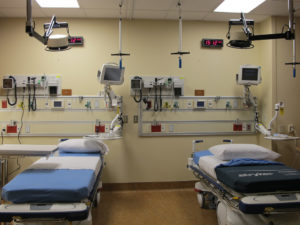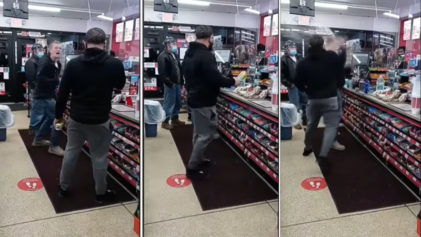Racism is toxic—literally. Researchers have found that Blacks and whites alike have higher mortality rates in communities where racism is prevalent.
They came to this conclusion after examining questionnaires about race, the General Social Survey, from 1993 to 2002 and pairing them with death records through 2008, when 15 percent of survey respondents had died. The data included responses from roughly 11,000 people in 100 communities across the country.
Those surveyed answered questions related to their preconceived notions of Black people. For example, do Black people have worse jobs, income or housing because they’re innately less intelligent than whites? Are Black people missing the drive to rise above poverty? Survey respondents were also asked to answer if they thought Blacks were lazy or if interracial marriages should be banned.
Researchers admit, however, that some respondents may have given less than truthful answers to the questions posed because they didn’t want to appear racist. That means some of the individuals who gave “socially acceptable” answers may have different viewpoints. That being said, an analysis of the data researchers received revealed that individuals who lived in areas with significant anti-black bigotry had a 24 percent increased chance of death.
“Racial prejudice compromises health for the community as a whole,” according to Yeonjin Lee, the lead author of the study and a University of Pennsylvania sociology researcher.
Lee said the study findings illustrate that racial prejudice harms both Blacks and whites. The study falls short of proving that prejudice increases the odds of early death but signals that perhaps people in neighborhoods with fewer racial tensions live longer because they enjoy more community support and policies that serve to better the lives of all residents. Social capital, as researchers described this phenomenon, has been associated with a 17 percent mortality drop. Social capital isn’t as high in areas with more racial bigotry.
Researchers also believe that high-prejudice communities give rise to hostile living environments that spark bodily stressors that adversely affect health. These stressors result in the development of more abdominal fat, heart disease and the buildup of plaque in the coronary artery. Collectively, these health issues can cause premature death. Researchers acknowledge, though, that they didn’t have information about other factors that lead to premature death such as poor eating habits, smoking or excessive drinking.
People don’t have to be exposed to egregious acts of racism to be experience the aforementioned stressors. Subtle forms of racism, or racial microagressions, such as treating Blacks with disrespect or distrust, can spark the aforementioned stress responses. These microaggressions could include following African-American shoppers around a store, clutching one’s purse when passing by an African-American person or giving Black diners poor service in restaurants.
“Little indignities can predict mortality,” David Williams, a Harvard University professor of public health and African-American studies, told Reuters. “Sometimes we think it takes a big event, but if you are exposed to a series of chronic ongoing little indignities it all adds up.”
In the age of #BlackLivesMatter, discussions of racism largely center on police killings of African- Americans. While such killings certainly deserve attention, the press they generate overlooks the millions of little ways Blacks are treated as less than human on a daily basis. On occasion, some of these microaggressions make the news, including the recent controversy over a Houston nightclub that charged Blacks a cover while letting whites enter for free. But by and large, the subtle forms of racism Blacks experience, the racism that slowly kills them, does not garner media attention. This study signals, however, that the little indignities birthed by racism are just as potentially deadly as encountering a trigger-happy policeman with an anti-Black bias.
It’s high time that racism in all of its forms, overt or insidious, is reported on and exposed. Black lives depend on it.



